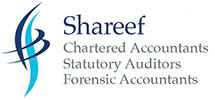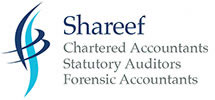HMRC urges parents to use Tax-Free Childcare
HMRC is keen to remind families that they can take advantage of the Tax-Free Childcare initiative to help save money. What does it cover and is it worth it?

A press release titled “£2,000 in government funding available to help with childcare costs” is reminding parents that they can cut their childcare bills using the Tax-Free Childcare scheme. The scheme works by setting up a Tax-Free Childcare account. The government then adds 25% of money paid into this account. This means for every £8 paid into the online account, families will automatically receive an additional £2 in government top-up. There is a limit of £500 every quarter, meaning up to £2,000 per year. The account has to be used to pay for childcare. The scheme is not just for traditional childcare, it can be used for things like holiday clubs, nurseries, childminders and after school clubs. Parents and carers could be eligible for Tax-Free Childcare if they:
- have a child or children aged up to 11. They stop being eligible on 1 September after their 11th birthday. If their child has a disability, they may get up to £4,000 a year until they are 17
- earn, or expect to earn, at least the national minimum wage or living wage for 16 hours a week, on average
- each earn under £100,000 per annum
- do not receive tax credits, Universal Credit or childcare vouchers.
Note that the scheme is the replacement for the old Childcare Voucher scheme. If you still receive childcare vouchers, you will permanently lose your entitlement to them if you change to Tax-Free Childcare, so it's worth making sure you will be better off before doing so.
Related Topics
-
Tax relief for lending to your company
You can usually claim tax relief for money you borrow personally to lend to your company. It sounds straightforward but there are in fact a number of restrictions to trip you up. How do you secure the tax relief?
-
Who can't yet sign up for MTD IT?
Making Tax Digital for Income Tax (MTD IT) becomes mandatory from April 2026 for sole traders and landlords with qualifying income over £50,000. However, HMRC’s current guidance makes clear that not everyone can sign up yet. If you are preparing early, are you actually eligible?
-
Pay self-assessment tax



 This website uses both its own and third-party cookies to analyze our services and navigation on our website in order to improve its contents (analytical purposes: measure visits and sources of web traffic). The legal basis is the consent of the user, except in the case of basic cookies, which are essential to navigate this website.
This website uses both its own and third-party cookies to analyze our services and navigation on our website in order to improve its contents (analytical purposes: measure visits and sources of web traffic). The legal basis is the consent of the user, except in the case of basic cookies, which are essential to navigate this website.